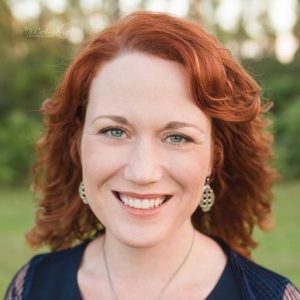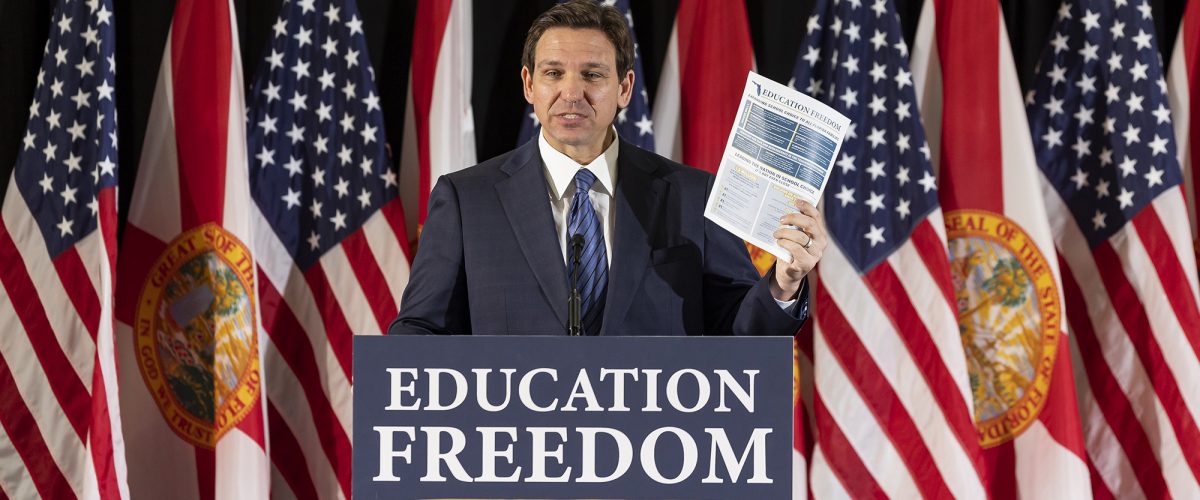The rapid growth of a Florida homeschool voucher initiative says less about its actual popularity than it does about the state’s efforts to undercut public schools, faith leader and education advocate Rachel Gunter Shapard said.

Rachel Shapard
“Why is it that we are defunding the school system where the majority of Florida’s children attend?” said Gunter Shapard, a Jacksonville-based Baptist minister and co-founder of Pastors for Florida Children.
At issue is a doubling in applications to Florida’s Personalized Education Program. Launched during the 2023-2024 school year, PEP vouchers cover education-related expenses for children who are not full-time enrollees at public or private schools.
According to the Orlando Sentinel, the program nearly reached its 20,000-student cap the first year and, with nearly 40,000 applications already submitted, is expected to reach its 60,000-student limit for the 2024-2025 school year. The vouchers range from $7,000 to $9,000 per student, and the program is permitted to grow by 40,000 students annually.
Gunter Shapard said there is more to the rapid rise in voucher demand than meets the eye: “The numbers are high for voucher applications because people whose children have been in private school all along, and never attended public schools, are submitting applications.”
Florida has one of the most extensive school voucher systems in the nation, with money available for private, charter and magnet schools in addition to homeschooling, education savings accounts and tax-credit scholarships.
Gov. Ron DeSantis has made no secret of his hostility toward public schools and educators. “When you think about education and your kids, as a parent, you know the kids are many ways an open book and do you wanna turn them over for eight hours a day to some indoctrination factory? Of course not,” he said in remarks to the Florida Homeschool Convention May 23 in Orlando.
Pastors for Children, a public education advocacy group with chapters in nine states, opposes so-called “school choice” programs for siphoning students and tax-payer dollars from already strapped public school systems, leaving local schools increasingly underfunded and understaffed.
The group held its first national conference May 6-7 in Orlando to brainstorm ways to counter voucher programs which often benefit the wealthy while underfunding education for struggling families. Florida was chosen for the gathering in part because of its aggressive voucher programs, organizers said.
“Financial advisers and private schools are telling those who don’t have a demonstrated financial need to apply, because why would they leave that money on the table? This is why we fought so hard against universal vouchers. They end up serving as a tax rebate for the rich,” Gunter Shapard said.
“Financial advisers and private schools are telling those who don’t have a demonstrated financial need to apply, because why would they leave that money on the table?”
But voucher programs are sweeping the nation. As of March, 29 states and the District of Columbia had passed or enacted a minimum of one education voucher program including a dozen programs accessible to all K-12 students, Education Week reported in May.
While the number of students utilizing such programs “represent a small fraction” of the nation’s public-school population so far, interest in vouchers and education tax credits continues to exceed projections in many cases, the publication found.
“Parents say they have sought out these programs as a way to deliver an education customized to their children’s unique needs,” the report says. “Politicians championing them say they represent a lifeline for students trapped in underperforming schools. Critics argue the programs deprive public schools of much-needed resources and point out that many children now benefiting from private school choice funds were already attending private schools beforehand. Several private school choice programs are facing lawsuits alleging that they violate state constitutions.”
Florida’s voucher system has survived all legal challenges so far, and the future of its PEP program appears to be growing right along with the increased popularity of homeschooling across the state.
According to a 2022 report by the Florida Department of Education, students learning at home climbed from 72,408 students in 2012 to 152,109 a decade later. “In the last five years, the total number of students in home education has increased by 62,292 or 69% over the 89,817 students reported in 2017-18, with a five-year average of 117,746 students.”
The number of homeschooling families rose rapidly during that period, from about 48,800 in 2012 to more than 65,500 in 2017 and 104,900 in 2022, the state report added.
Those who receive PEP vouchers may use them to cover numerous education-related expenses, including curriculum purchases, standardized test fees, tuition for private tutoring, laptops and virtual learning programs approved by the state.
Voucher recipients are required to withdraw from full-time enrollment in public or private schools and be able to pass reading, mathematics, science, biology and U.S. history assessment tests annually. “There are no specific hourly requirements for students, and parents are not required to keep a record of the number of instructional hours/days,” the state said.
It’s frustrating to see the state being so generous with vouchers for private and homeschool education while public education suffers, Gunter Shapard said. “Meanwhile, my daughter’s public middle school and my son’s public high school are losing six to eight teachers each next year, and a number of schools are being considered for closure because we have defunded Florida public schools for decades.”
Related articles:
State leaders of Pastors for Children gather to strategize on protecting public education


